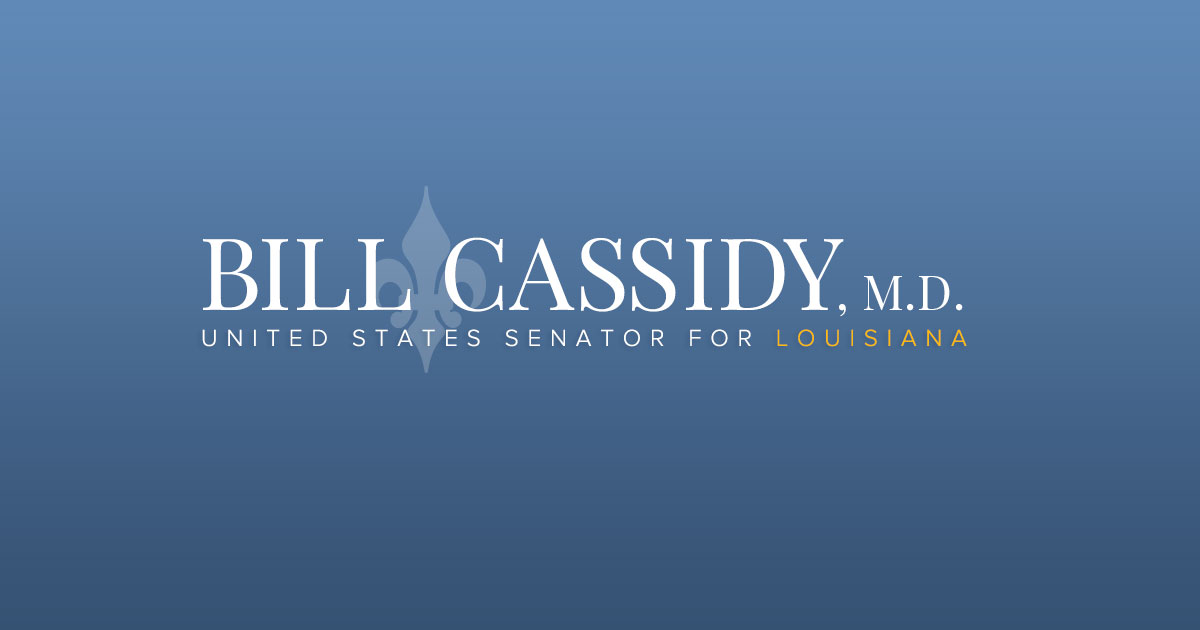Source: United States Senator for Louisiana Bill Cassidy
WASHINGTON – U.S. Senators Bill Cassidy, M.D. (R-LA), Gary Peters (D-MI), John Boozman (R-AR), and Tim Kaine (D-VA) today reintroduced bipartisan legislation to expand opportunities for high school students to obtain college credit in an effort to make higher education more accessible and affordable. The Making Education Affordable and Accessible Act (MEAA) would help improve high school and college graduation rates by expanding the use of existing grants to institutions of higher education to support dual or concurrent enrollment initiatives and early college high school programs.
“The high price tag of higher education holds far too many Louisiana students back,” said Dr. Cassidy. “This bill reduces the financial strain on Louisiana families by making college and career level courses available to more high school students. This creates a highly capable workforce that brings high-skilled jobs with good pay and benefits to our state and the rest of the country.”
“The rising costs of higher education should not deter hardworking, motivated students from furthering their careers and obtaining a quality higher education degree or credential,” said Senator Peters. “This bipartisan bill will help students in Michigan and across the country earn college credit and pursue their dreams without having to take on crippling student loan debt that is damaging to their financial future. I’ll continue working to ensure education opportunities beyond high school are more accessible and affordable for families and students.”
“Creating more affordable opportunities for students to pursue higher education will give them the tools and skills they need to be successful in today’s job market,” said Senator Boozman. “Concurrent enrollment and early college programs have a proven track record of effectiveness in Arkansas. This bill will improve access to courses that put students on the path to well-paying careers.”
“College costs are too burdensome for too many students,” said Senator Kaine. “I benefitted from dual enrollment as a high school student, and I’ve been committed to ensuring that students today can benefit from dual enrollment too. I’m proud to help introduce this bipartisan legislation to make higher education more accessible and affordable for every American and strengthen access to programs that will support our future leaders.”
MEAA would allow money from the Higher Education Act Title VII Fund for the Improvement of Postsecondary Education (FIPSE) to be used by institutions of higher education:
- Carry out dual or concurrent enrollment programs as well as early college high school programming;
- Provide educators in these programs with professional development;
- Assist students in the program in covering education-related costs such as tuition and fees, books, and transportation; and
- Support activities such as course design, course approval processes, community outreach, student counseling and support services.
Concurrent enrollment provides high school students the opportunity to take college-credit bearing courses taught by college-approved high school teachers, while dual enrollment involves students being enrolled in two separate institutions. Early college high schools are located on college campuses or within schools, respectively, and allow students to begin working toward an associate’s degree while they complete the necessary coursework for a high school diploma. This model often includes a 13th year to allow students to complete their associate’s degree.
###
